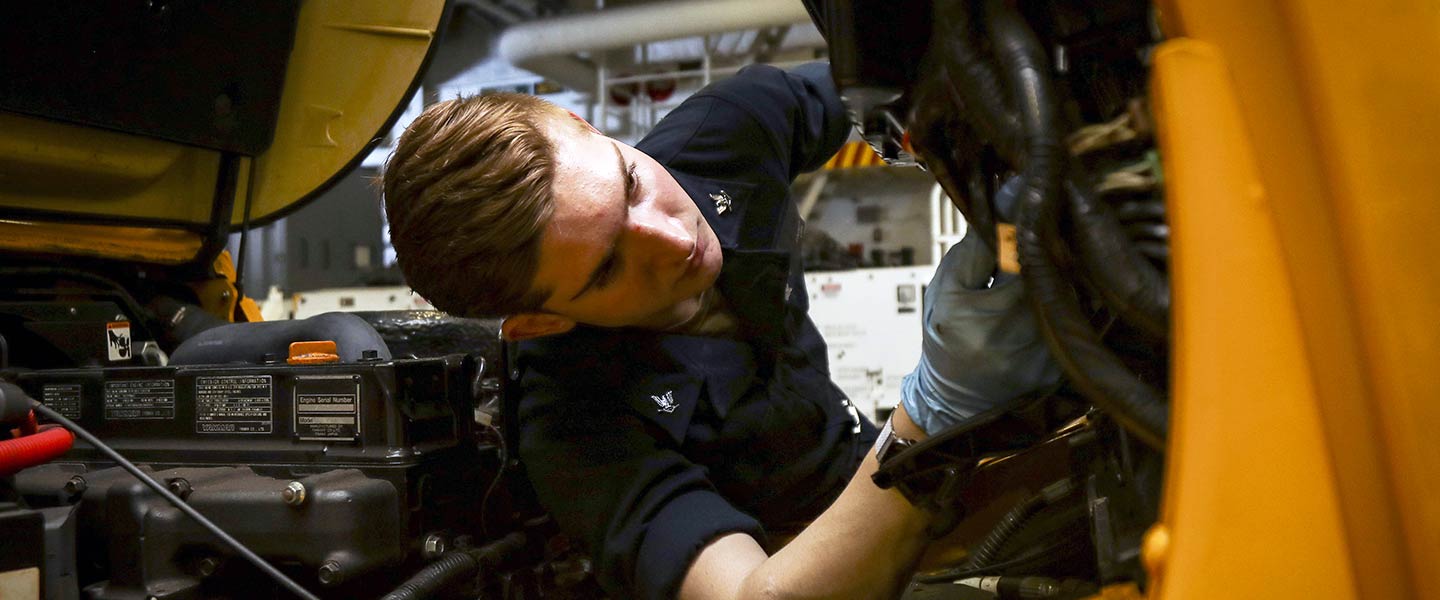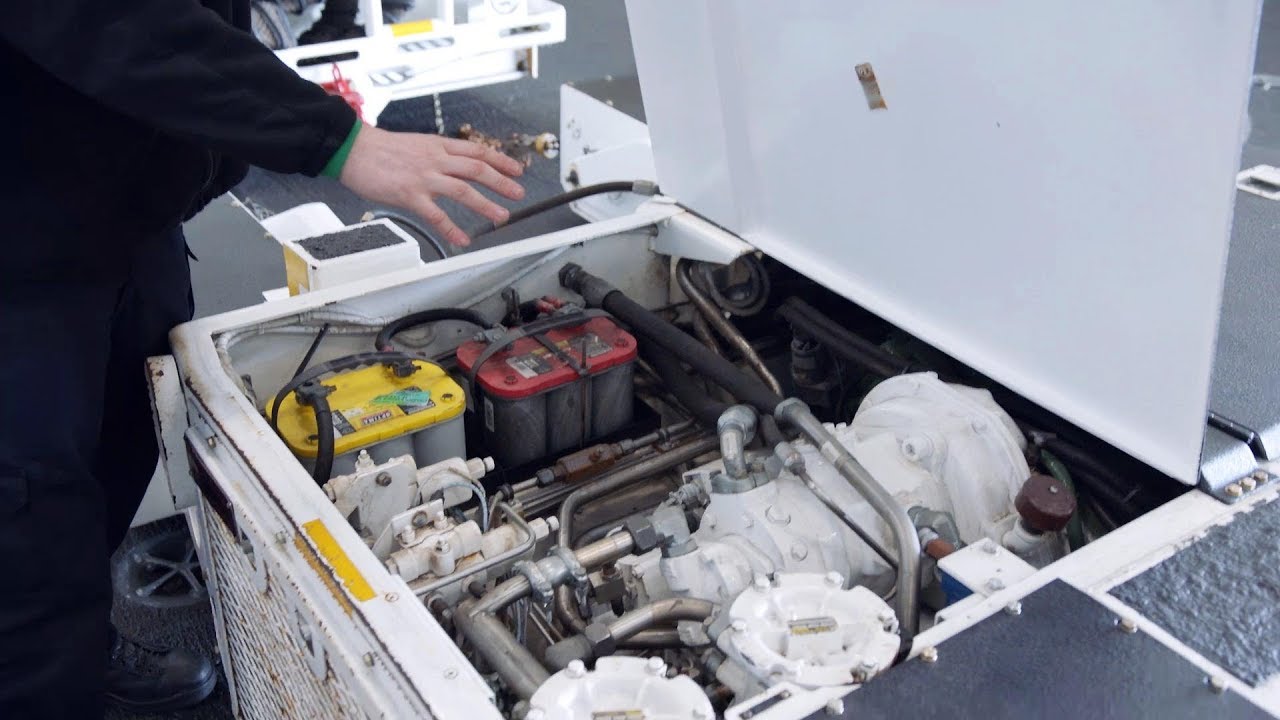What to Expect
More Information
Responsibilities
Aviation Support Equipment Technicians (AS) operate and maintain all ground support equipment needed to fly an aircraft. As an AS, your job responsibilities may include:
- Inspecting, testing, and repairing generators, motors, hydraulic and pneumatic equipment, transmissions systems, and gasoline and diesel engines
- Repairing automotive electrical and mechanical equipment
- Manufacturing and installing belts, hoses and other components
- Performing body work, welding and painting of aircraft servicing units
- Repairing and servicing brakes, refrigeration and air conditioning systems
- Training and testing other on vehicle operation
Work Environment
As an AS, you may be assigned to sea or shore duty in the U.S. or overseas, guaranteeing a variety of different work environments. You may be assigned to shore-based hangars, aircraft carrier flight decks, or flight lines at air stations, among other possibilities. Wherever you’re assigned, you can expect to do work of a physical nature, experience high wind and noise levels and work as part of a team.
Training & Advancement
Upon completion of initial training at Recruit Training Command Great Lakes (known as Boot Camp), you’ll report for specialized training, including:
Class "A" Technical School (17 weeks) in Pensacola, FL, for training in basic aviation theory and related skills
Following completion of “A” School, Aviation Support Equipment Technicians may attend “C” school for training on equipment specific to your first assignment. Once all training is complete, you’ll proceed to your first assignment, which may be on an aircraft carrier, naval air station or other shore-based aviation activity.
Promotion opportunities are regularly available but competitive and based on performance.
Advanced Training
Advanced training as an Aviation Support Equipment Technician may also be available during later stages of your career. For those with further leadership aspirations and a college degree, Officer roles may be available, providing opportunities to lead and train others.
Post-Service Opportunities
Specialized training received and work experience gained in the course of service can lead to valuable credentialing and occupational opportunities in related fields in the civilian world, such as employment with airlines, airports and more.
Education Opportunities
Beyond offering access to professional credentials and certifications, Navy technical and operational training as an Aviation Support Equipment Technician can translate to credit hours toward a bachelor’s or associate degree through the American Council on Education.
You may also continue your education through undergraduate degree opportunities like the Navy College Program and Tuition Assistance and the Post-9/11 GI Bill.
Qualifications & Requirements
A high-school diploma or equivalent is required to become an Enlisted Sailor and an Aviation Support Equipment Technician. You must also be a U.S. citizen eligible for security clearance.
AS applicants should possess a strong aptitude for working with tools, equipment and machines. You should be able to keep accurate records, perform detailed work, and work well with others as part of a team.
Physical requirements for this rating include normal use of your hands, a high level of physical fitness, normal hearing and normal color perception.
General qualifications may vary depending upon whether you’re currently serving, whether you’ve served before or whether you’ve never served before.
Part-Time Opportunities
Serving part-time as a Navy Reserve Sailor, your duties will be carried out during your scheduled drilling and training periods. During monthly drilling, Aviation Support Equipment Technicians in the Navy Reserve typically work at a location close to their homes.
For annual training, you may serve anywhere in the world, including locations in the U.S., at bases overseas, or in areas where humanitarian needs are great.
Take a moment to learn more about the general roles and responsibilities of Navy Reserve Sailors.
Most of what you do in the Navy Reserve is considered training. The basic Navy Reserve commitment involves training a minimum of one weekend a month (referred to as drilling) and two weeks a year (referred to as Annual Training) – or the equivalent of that.
Aviation Support Equipment Technicians in the Navy Reserve serve in an Enlisted role. Before receiving the ongoing professional training that comes with the job, initial training requirements must be met.
For current or former military Enlisted servicemembers, prior experience satisfies the initial Recruit Training requirement, so you will not need to go through Boot Camp again.
For those without prior military experience, you will need to meet the initial Recruit Training requirement by attending Boot Camp in Great Lakes, IL. This training course will prepare you for service in the Navy Reserve and count as your first Annual Training.
































































































































